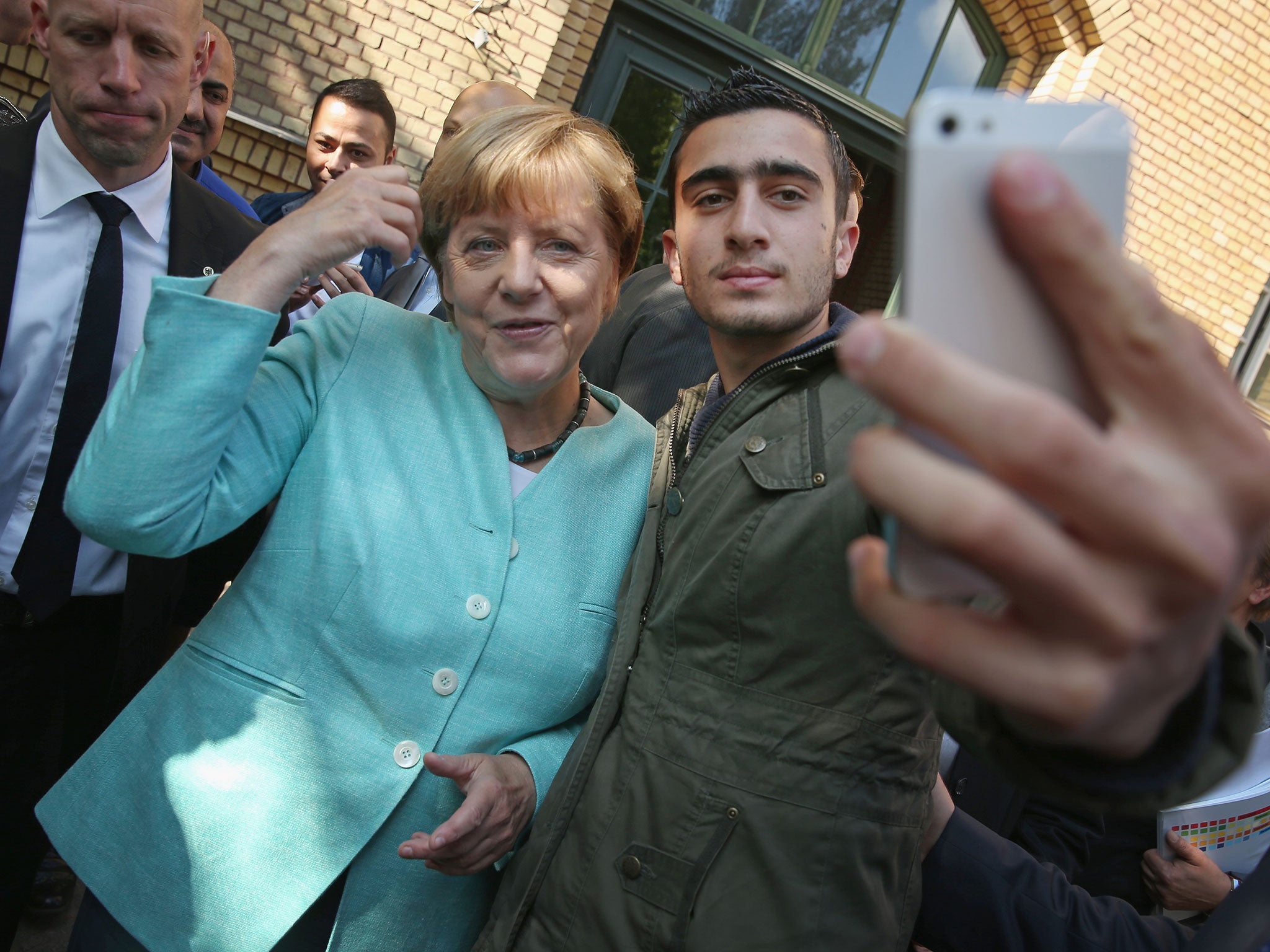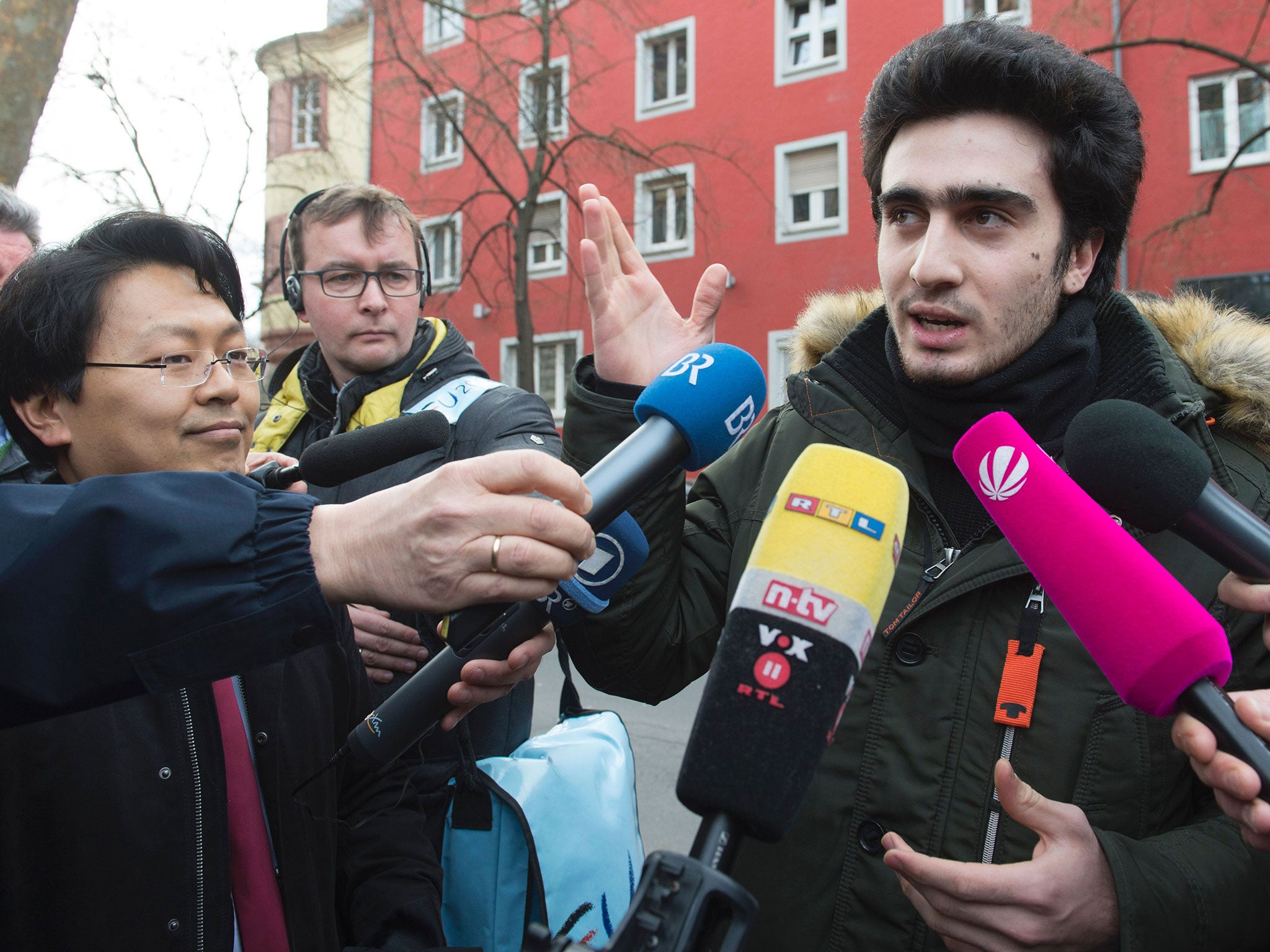Syrian refugee falsely labelled a terrorist on Facebook loses 'fake news' case against social media giant
Anas Modamani fails to gain order for Facebook to proactively remove defamatory content

Your support helps us to tell the story
From reproductive rights to climate change to Big Tech, The Independent is on the ground when the story is developing. Whether it's investigating the financials of Elon Musk's pro-Trump PAC or producing our latest documentary, 'The A Word', which shines a light on the American women fighting for reproductive rights, we know how important it is to parse out the facts from the messaging.
At such a critical moment in US history, we need reporters on the ground. Your donation allows us to keep sending journalists to speak to both sides of the story.
The Independent is trusted by Americans across the entire political spectrum. And unlike many other quality news outlets, we choose not to lock Americans out of our reporting and analysis with paywalls. We believe quality journalism should be available to everyone, paid for by those who can afford it.
Your support makes all the difference.A German court has rejected a Syrian refugee’s attempt to sue Facebook for allowing the spread of “fake news” accusing him of terrorism and attempted murder.
Anas Modamani launched a legal battle to make the social media giant vet and remove libellous posts but the Würzburg district court found against him on Tuesday.
A spokesperson for the court said it dismissed the application because Facebook is “neither a perpetrator or participant in the smears”, with culpability sitting with users.
“According to the e-commerce directive of the EU, a host provider is not obliged to ‘proactively search’ of for content that could potentially be objectionable,” Tobias Knahn added.
A judge said he would not provide an interim injunction blocking the content as there was not sufficient evidence that the offending posts could be accessed by an average Facebook user in Germany, or that Mr Modamani would be damaged further.
His chance selfie with Angela Merkel at an asylum shelter in Berlin went viral in 2015, just weeks after he arrived in Germany from a war-torn suburb of Damascus, with the initially positive reaction becoming increasingly sinister after a wave of terror attacks in Europe.
The teenager’s picture was used in Facebook posts accusing him of links to terrorist attacks and the attempted murder of a homeless man in Berlin, with the images remaining online despite a series of attempts to have them removed.
The lies were repeated on Twitter and on websites posing as “anti-mainstream media” news outlets, where the articles remain.
Mr Modamani, now 19, attempted to sue Facebook for damages and was seeking an injunction that would force the social media giant to actively search for and remove such posts, rather than wait for users to flag violations of the site’s “community standards”.
“I came to Germany because I wanted to live in peace, away from danger,” Mr Modamani told The Independent ahead of the court case.
“I don’t want anyone to continue using my photo on Facebook. I want to live in peace without any problems.”
His lawyer, Chan-jo Jun, argued that Facebook had a legal responsibility to remove defamatory or discriminatory content that violates German law, saying malicious posts about Mr Modamani had remained online despite repeated complaints.

Martin Munz, a lawyer representing Facebook, told the court that a billion pieces of content can be uploaded to the site in a single day, and that a “miracle machine” would be needed to sort through it.
Facebook built in new tools allowing German users to combat the spread of fabricated news stories in January, which allow posts to be flagged and passed to third party fact-checkers.
A spokesperson for the social media giant said it appreciated the "very difficult situation" for Mr Modamani and had worked to disable reported content.
“We will continue to respond quickly to valid reports of the content at issue from Mr Modamani's legal representatives," she added.
"We are pleased that the court shares our view that legal action was not merited or the most effective way to resolve the situation. We will continue meeting our obligations under German law in relation to content which is shared by people on our platform.”
Join our commenting forum
Join thought-provoking conversations, follow other Independent readers and see their replies
Comments